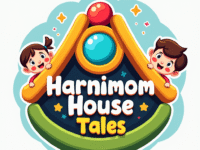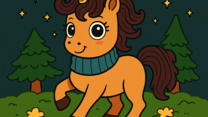
How to Make Friends at the Park or Playgroup: A Social Guide for Young Children and Their Grown-Ups
Making friends is one of the most important social milestones in a young child’s life. It’s at places like the local park, playgroup, or toddler class that children often have their first real chance to practice social skills outside of the home. These environments are full of new faces, unstructured play, and social learning opportunities—but they can also feel overwhelming, especially for shy children or those new to group settings.
As a parent or caregiver, you play a crucial role in helping your child learn the art of making friends. The good news? Friendships at this age don’t need to be long or deep to be meaningful. A few minutes of shared giggles on a slide or taking turns with a ball can teach your toddler or preschooler skills they’ll use for a lifetime.
In this post, we’ll explore how to support your child in making friends at the park or playgroup—with empathy, patience, and a little social coaching along the way.

Why Early Friendships Matter
Friendships in early childhood aren’t just cute—they’re essential. When children learn how to interact with peers, they’re developing important life skills like empathy, communication, cooperation, and conflict resolution. These early experiences help build the foundation for emotional intelligence and confidence.
Even simple social exchanges—like saying hello, taking turns, or sharing a toy—teach kids how to navigate relationships, respect boundaries, and feel part of a community.
Start with Observation
Before jumping in, observe how your child interacts with other kids in social settings. Are they eager to join in? Do they tend to hang back? Are they more comfortable with parallel play (playing near others, but not directly with them)? These insights will help you understand how much support they may need.
It’s completely normal for toddlers and even preschoolers to prefer playing alone or side-by-side with others before engaging in true cooperative play. Social confidence develops gradually.
Alex’s Brave Voice

SHOP NOW
Model Friendly Behavior
Your child learns how to socialize by watching you. At the park or playgroup, model the kind of social behavior you’d like to see. Say hello to other parents. Smile and introduce yourself. Comment kindly about another child’s toy or game. When your child sees you initiating small connections, it teaches them that it’s safe—and even enjoyable—to do the same.
You can also model introductions. For example:
- “Hi, I’m Liam’s dad. What’s your name?”
- “This is Olivia. She loves the swings. What’s your child’s favorite thing at the park?”
These low-pressure interactions give your child a script and a sense of familiarity.
Teach Simple Social Scripts
Children often need guidance on what to say and how to join in with others. You can practice simple “friendship scripts” at home through role play or pretend play with toys. Encourage your child to try phrases like:
- “Can I play with you?”
- “Do you want to build with me?”
- “Let’s take turns!”
- “Want to go down the slide together?”
Practicing these phrases gives them confidence when the real-life moment arrives.
Encourage Turn-Taking and Sharing
One of the biggest social challenges for young children is learning to wait their turn or share a toy. These skills don’t come naturally—they’re taught, modeled, and reinforced gently over time.
At the park or playgroup, help your child understand how to wait, ask for a turn, or offer a toy. You might say:
- “It looks like she’s using the bucket right now. Let’s wait, and then you can have a turn.”
- “You’re using the shovel. When you’re done, you can give someone else a turn.”
Don’t expect perfection, but do praise small efforts: “You waited so patiently!” or “That was very kind of you to share your toy.”
Stay Nearby but Don’t Hover
Your presence gives your child the emotional security they need to explore. At the same time, resist the urge to intervene at the first sign of awkwardness. Let your child try to figure things out—whether it’s how to enter a game, resolve a small disagreement, or approach another child.
Stay within view and be available to guide them if needed, but give them space to grow socially. If they seem unsure, offer a gentle prompt like:
- “It looks like they’re building a tower. You could ask if you can help.”
- “You want to play? Let’s think of something you can say.”
Respect Their Pace
Some children are naturally outgoing. Others are more reserved and take longer to warm up. Both are perfectly normal. Avoid pushing your child to interact if they’re not ready. Instead, support them where they are.
You can say:
- “You don’t have to talk right now. Let’s just watch for a bit.”
- “You can play near the kids, and join when you feel ready.”
Over time, your child may grow more confident simply from being in the environment and observing.
Set Up Playdates for Extra Practice
Playgroups and parks can feel overwhelming because there are so many children at once. Try setting up one-on-one or small group playdates where your child can practice social skills in a lower-pressure environment.
Choose playmates with similar temperaments, and keep the playdates short and sweet—30 to 60 minutes is perfect for toddlers and preschoolers. Be present, but let the children take the lead.
Over time, these experiences help your child learn how to negotiate, cooperate, and connect.
Talk About Friendships at Home
After a trip to the park or playgroup, talk with your child about what happened. Use simple questions to help them reflect and process:
- “Did you have fun playing with someone today?”
- “What games did you play?”
- “Was it hard to wait for a turn?”
Use books, toys, or bedtime stories to reinforce friendship themes. You can even use stuffed animals or action figures to role-play positive social situations.
Books like “How Do Dinosaurs Play with Their Friends?” or “Should I Share My Ice Cream?” by Mo Willems are great conversation starters.
Celebrate Small Social Wins
Making friends is a learning process—especially for young children. Praise their efforts, not just the outcomes.
Say things like:
- “I saw you talking to that little boy. That was brave of you!”
- “You asked her if she wanted to play, and she said yes! That was such a kind thing to do.”
- “Even though it was hard to share your toy, you did it. That’s a big step.”
Positive reinforcement helps children feel proud of their social progress and more willing to try again.
Final Thoughts: You’re Their Social Safety Net
Making friends at the park or playgroup doesn’t happen overnight. It takes time, exposure, and lots of encouragement. The most important thing is that your child feels emotionally safe and supported by you. With your guidance, they will grow more confident, more curious, and more capable of forming meaningful connections.
Whether your child makes a lifelong friend or just shares a five-minute game on the slide, these early moments of connection are building blocks for a lifetime of social learning.
So keep showing up, keep encouraging, and keep celebrating every little win. You’re doing more than helping your child make friends—you’re helping them believe in themselves.
👉 Download Toddler Routine Chart →
Final Thoughts
Making friends doesn’t always come naturally—but with storybooks, toddlers gain the tools, words, and confidence to connect. Keep reading, keep modeling, and celebrate each social step—no matter how small.
📘 Next up: Books That Teach Toddlers to Say “Sorry” Without Forcing It →













